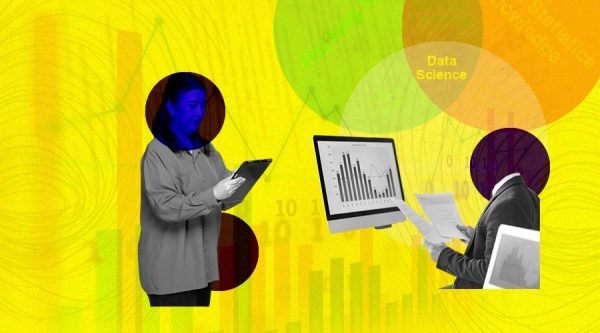What is enterprise data science and how can you utilize it in your business?
For a reason, numerous associations are investigating advanced change ventures that are called endeavour information science. Enterprise data science goes past big data, drives, and exploits late advances in AI calculations and distributed cloud computing, to remove all conceivable information from the advanced resources of a venture and use it as a driver for change worth creation all through the association. The expression “venture” separates and recognizes this essential methodology from the field known as “Data science“, which is presently restricted to the utilization of AI and measurements dependent upon the situation, instead of an all-encompassing methodology that expects to expand the worth of advanced resources across the undertaking. Big data is a term that describes large, hard-to-manage volumes of data – both structured and unstructured – that inundate businesses on a day-to-day basis and cloud computing allows businesses to access their information virtually, creating a flexible and global way of accessing your data at any place, any time. AI in business is useful for companies to look at AI through the lens of business capabilities rather than technologies. Broadly speaking, AI in business can support three important business needs: automating business processes, gaining insight through data analysis, and engaging with customers and employees.
There are many advantages to this methodology, going from functional efficiencies to distinguishing new open doors. Enterprise data science can speed up information disclosure and work with its dispersion across the venture. Thus, it can prompt significant creation.
Today, undertakings that seek big data face a production network issue. Rather than a production network of things, we presently face an inventory network of data. Rather than a large number of ERP frameworks and different sources, ventures have a huge number of data sources. Rather than cost records that can be deficient, incorrect, or loose, we have information of many kinds that can experience the ill effects of similar bothersome attributes. Rather than General Ledger or Commodity pecking orders that can vary between offices or regions, we might have other reference structures that contrast contingent upon the idea of their source.
For an enterprise data science program, your DDL module would be a cloud-based data procurement module liable for associating with your information sources and stacking your information.
Your DE module would be an overall information handling system that would permit you to break down, orchestrate, enhance, and even sum up your information. The expression “improvement” as utilized here goes past information increase and incorporates components of information quality like construction, consistency, and subordinate information reference plans.
Organizations who embrace enterprise data science as an essential way to deal with obtaining data will be abundantly compensated and be pioneers in their areas.
Does Your Business Need One?
Given the capacities of information science stages, it is important to find out if a business needs one. An ideal litmus test for organizations is assessing four elements:
- Activities — a business might wind up troubled by innumerable assignments that can be consigned to mechanization. Having an obscure number of models presently dynamic is likewise an issue.
- Cooperation — the absence of coordination among groups can be a critical debilitation. Models that can’t be found in that frame of mind models, duplicated by more up-to-date groups, or trusted by business clients might warrant a need.
- Sway — profit from venture is insignificant regardless of the execution of a sound model. The shift of needs to investigation from business objectives might be a hidden issue.
- Versatility — a business that utilizes a model that can’t scale with the developing interest for information might be passing up significant open doors.
There is a compelling reason to meet each of the four elements — only one is sufficient to warrant the requirement for an information science stage. With legitimate use, it can bring further developed client maintenance, diminished risk, better models, and upgraded coordination.
Regardless of whether the business seems to run as expected, and information science stage can in any case be advantageous speculation as a result of its true capacity for development. Computerized reasoning is being created as a centre component, permitting the program to gain from information and draw more exact models. Information research is likewise projected to become one of the top vocations to fill in the flow decade, meaning more fundamental experts as end-clients of the program.
There is not a really obvious explanation for information to turn out to be less applicable before long, not in a computerized economy. Later on, the investigation might foresee one more asset to turn a major trend ‘dark gold.’ To stay pertinent and cut-throat in this market, organizations should hold onto each benefit they get.
Source: analyticsinsight.net









